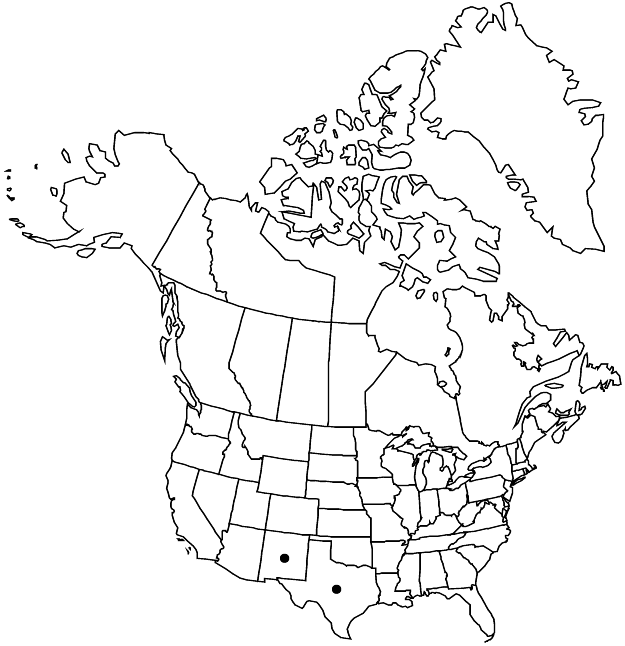Difference between revisions of "Silene plankii"
Revis. N. Amer. Silene, 56, plate 7, fig. 55. 1947.
FNA>Volume Importer |
FNA>Volume Importer |
Revision as of 22:35, 16 December 2019
Plants perennial, cespitose; tap-root stout; caudex with many often subterranean branches, woody. Stems ascending, branched, wiry, leafy, slender, 10–20 cm, finely retrorse gray-puberulent. Leaves largest in mid-stem region; blade linear to narrowly lanceolate or oblanceolate, 1–4 cm × 1–5 mm, apex sharply acuminate, glandular-puberulent. Inflorescences with flowers usually solitary, terminal on branches. Pedicels shorter than calyx, glandular-puberulent. Flowers: calyx 10-veined, tubular, constricted around carpophore, umbilicate, 20–30 × 3–6 mm, papery, green, glandular-puberulent, lobes lanceolate, 2–4 mm, margins membranous, apex acute; corolla scarlet, clawed, claw equaling calyx, limb obconic, 2-lobed, 7–10 mm, margins entire or crenate, appendages ± lacerate, 1–1.5 mm; stamens exserted, ± equaling corolla lobes; styles 3, exserted, ± equaling corolla lobes. Capsules narrowly ellipsoid, equaling calyx, opening by 6 recurved, brittle teeth; carpophore ca. 5 mm. Seeds brown, reniform, 1.5 mm, rugose in concentric rings on sides, margins papillate. 2n = 48.
Phenology: Flowering summer–early autumn.
Habitat: Crevices in granite and quartzite cliffs
Elevation: 1300-2600 m
Distribution

N.Mex., Tex., Mexico.
Discussion
Of conservation concern.
Silene plankii is a close relative of S. laciniata, differing in its compact tufted growth, small and narrow leaves, and shallowly two-lobed petals. It is endemic to the Del Carmen Mountains on either side of the Rio Grande valley. Plants of S. laciniata with a habit and leaves similar to S. plankii but the deeply laciniate petals of S. laciniata occur on the cliffs of Santa Cruz Island off the coast of California.
Selected References
None.